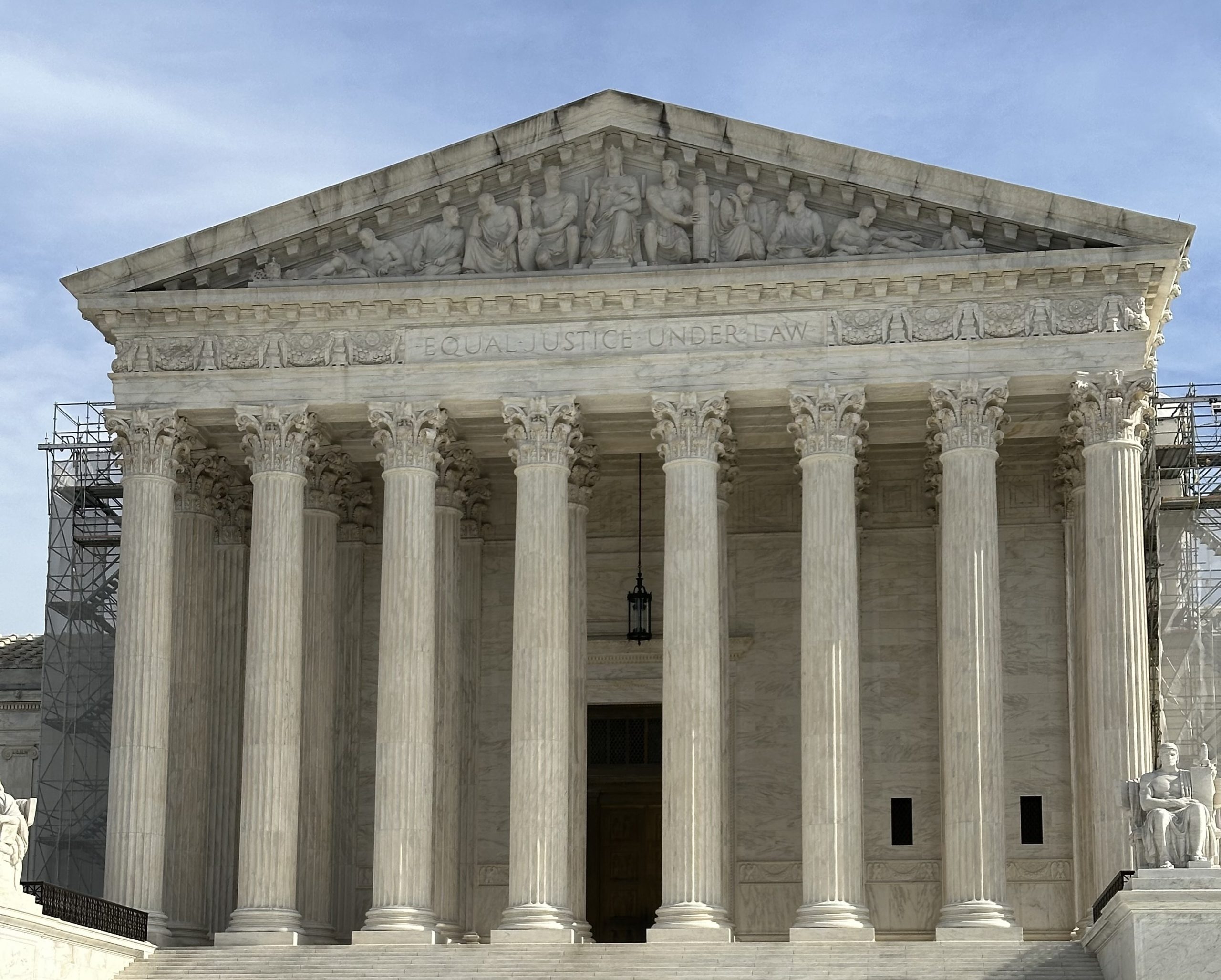Kentucky man says police violated Fourth Amendment by searching his backpack during arrest
Petitions of the week
on Apr 19, 2024
at 3:05 pm
The Petitions of the Week column highlights a selection of cert petitions recently filed in the Supreme Court. A list of all petitions we’re watching is available here.
The Fourth Amendment generally bars police from searching people or their property without a warrant. The Supreme Court has made an exception for searches made during an arrest. But although that exception applies to arrestees themselves, it only extends to their nearby possessions if there is a risk they can reach into them to grab a weapon or destroy evidence. This week, we highlight petitions that ask the court to consider, among other things, whether a backpack that is outside the reach of a person in handcuffs falls within the warrant exception.
In 2019, police on bicycle patrol in Lexington, Kentucky, observed two men at a park bench exchange cash for what they believed to be a joint containing synthetic marijuana. The officers followed the suspected purchaser, who admitted to the sale and turned over the joint. One officer then returned to the park. The officer approached the suspected seller, William Benbury, who was still sitting with his backpack on the table, and announced he was under arrest.
Once Bembury was handcuffed with his hands behind his back, the officers searched his backpack, uncovering a small bag of synthetic marijuana and seven dollars in cash.
Bembury pled guilty to one count of possession of synthetic drugs, on the condition that he could seek to have the evidence from searching his backpack tossed out on appeal. Because he was not wearing the backpack when he was arrested, was handcuffed while police rummaged through it, and never consented to the search, Bembury argued, no exception to the Fourth Amendment applied, and the officers needed a warrant before making the search.
A Kentucky appeals court agreed with Bembury that the search was likely unconstitutional. But the Kentucky Supreme Court reversed and upheld his conviction. Acknowledging that the U.S. Supreme Court has yet to decide whether items like backpacks or purses are categorically protected by the Fourth Amendment from search during arrest, the state supreme court was split on how to proceed.
A majority of the court ruled that any container that had been in someone’s possession at or immediately before their “time of arrest” falls within existing exceptions to the warrant requirement, and thus the officers were justified in searching Bembury’s backpack.
In dissent, other justices advocated for a middle-ground approach to balance the state’s interest in protecting both police and evidence against an individual’s right to privacy in each case, or for a categorical bar on searching personal items outside the reach of someone being arrested.
In Bembury v. Kentucky, Bembury asks the justices to grant review and reverse the Kentucky Supreme Court’s ruling. He argues that there is a divide over whether the Fourth Amendment barred the search of his backpack without a warrant – not only among a range of states and federal courts of appeals, but on the Kentucky high court itself, which produced a splintered set of opinions in his own case. “[A]rrests of people possessing an external container happen all over the country many times every day,” Bembury writes, urging the justices to resolve this question for good.
A list of this week’s featured petitions is below:
Benning v. Oliver
23-664
Issues: (1) Whether, where the Supreme Court has required that a prisoner is entitled to procedural safeguards if their “correspondence” is intercepted, respondents are entitled to qualified immunity simply because the correspondence in the Supreme Court case was postal mail, rather than email; and (2) whether the doctrine of qualified immunity should be abolished, pared back, or clarified.
Alvarado v. Austin
23-717
Issues: (1) Whether a Religious Freedom Restoration Act challenge to the Department of Defense’s failure to accommodate military chaplains’ religious objections to a COVID-19 vaccine mandate was and remains justiciable after Congress directed the Department to rescind the mandate; and (2) whether a challenge to the Department’s coercing chaplains to speak its message about the COVID-19 vaccine survives as capable of repetition yet evading review.
Forsythe v. McDonough
23-779
Issues: (1) Whether the U.S. Court of Appeals for the Federal Circuit misinterpreted 38 U.S.C. § 5103(a)(1) to allow the Department of Veterans Affairs to issue evidentiary notice only before receiving a veteran’s claim, even though the statute requires notice that accounts for evidence “not previously provided to the Secretary that is necessary to substantiate the claim”; and (2) whether the Federal Circuit violated the longstanding doctrine of Accardi v. Shaughnessy by permitting the VA to violate its own regulation on the ground that the agency’s noncompliance cannot be “prejudicial” to veterans.
PHH Mortgage Corporation v. Guthrie
23-785
Issue: Whether the Bankruptcy Code preempts state-law claims premised on alleged efforts to collect a debt in violation of the bankruptcy court’s discharge injunction.
Bembury v. Kentucky
23-802
Issue: Whether the exception to the Fourth Amendment’s warrant requirement for searches incident to arrest permits a warrantless search of a backpack, purse, luggage, or other external container in the arrestee’s possession at the time of arrest, if, at the time of the search, the container is separated from the person and there is no reasonable possibility the arrestee could access the container to obtain a weapon or destroy evidence.






